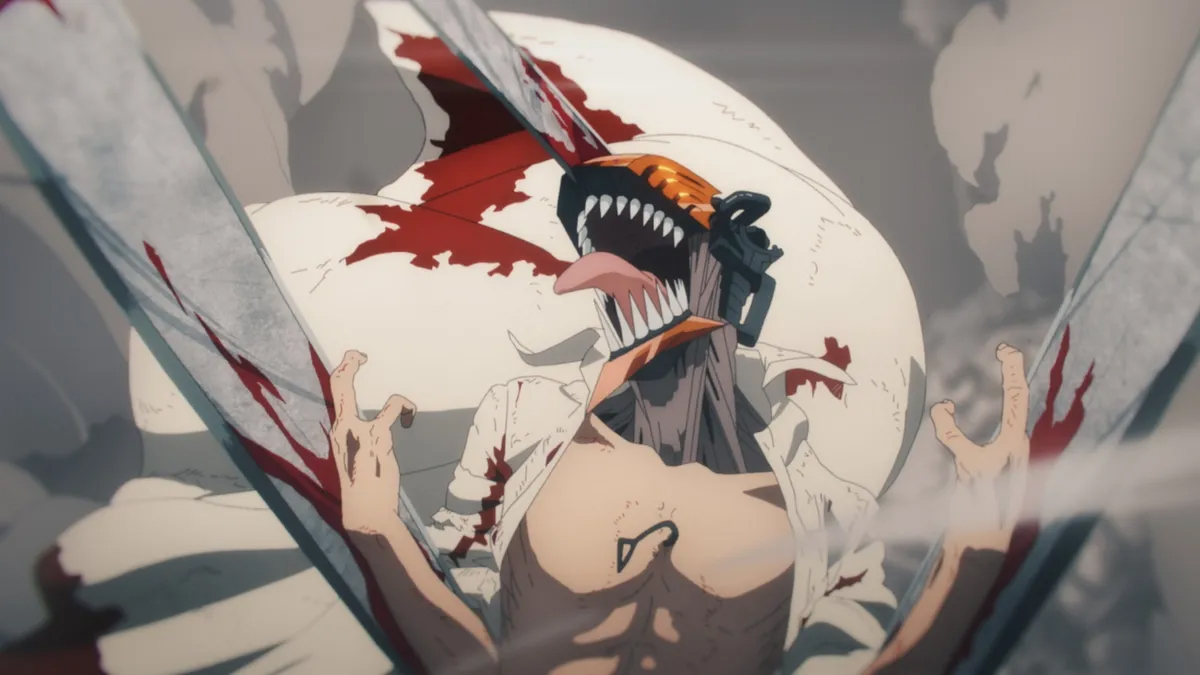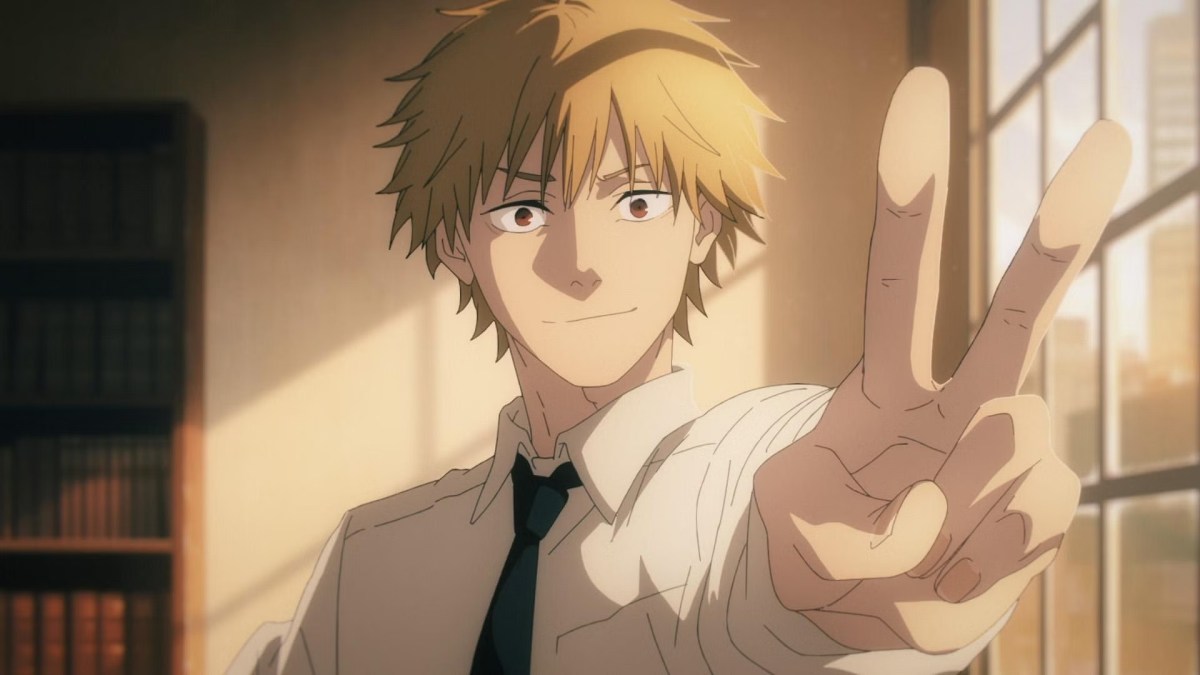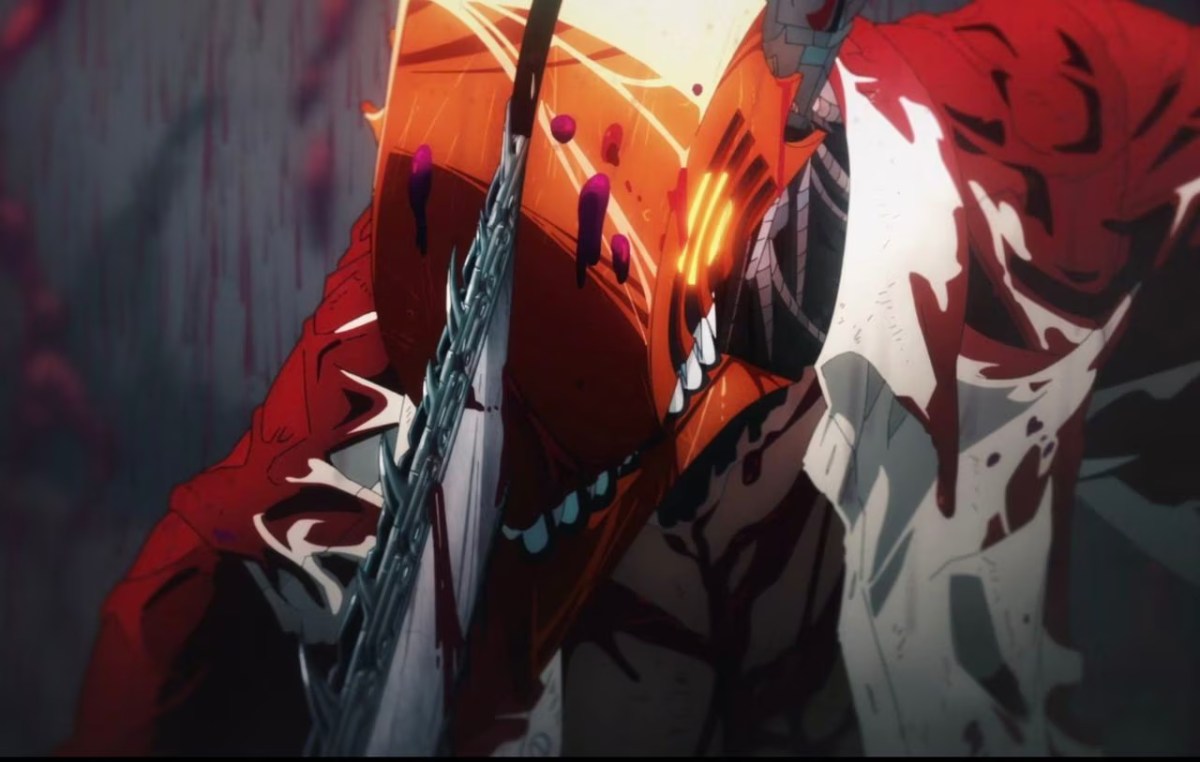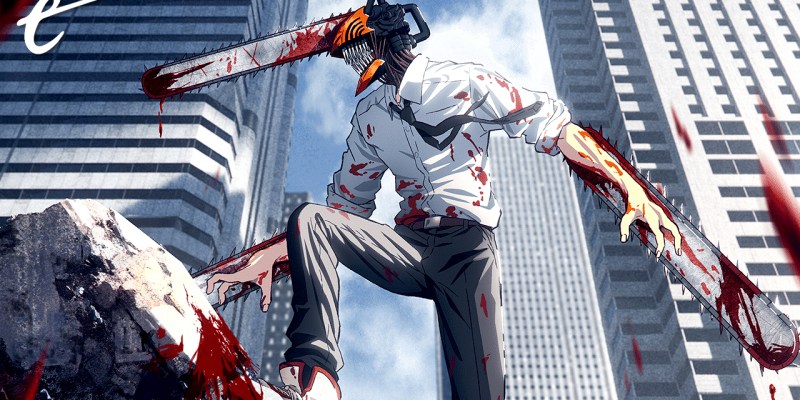This article contains spoilers for Chainsaw Man season 1.
If there was one series last year that exploded in popularity and dominated discussion week after week, it was Chainsaw Man. After waiting for what seemed like an eternity, Tatsuki Fujimoto’s action series became one of the best anime released last year and had fans completely and utterly engaged. On one hand, that shouldn’t be surprising given the quality of the original manga and Fujimoto’s talent as a storyteller, but the series also stands out for just how different it is compared to other titles published by Shonen Jump.
When you think of other classic anime franchises that came from Jump, most shonen titles tend to be happier, more comical, and openly appealing to that teenage boy mentality. Sure, series like Dragon Ball Z, Naruto, and One Piece could have some darker and more serious moments, but I would still ultimately describe those series as being a lot of fun and family-friendly. I don’t think I would ever use the word “fun” with Chainsaw Man or call it family-friendly in any reality. It’s bleak, dour, crass, borderline nihilistic, and more adult-oriented than any other shonen series I’ve come across. I’m not saying that the darker and more mature tone is what makes Chainsaw Man as good as it is, but it does serve as an indication of the kind of place shonen action is in right now.
In recent years, Shonen Jump has been dipping its toes a lot more into more horror-oriented and violent premises. Demon Slayer, Jujutsu Kaisen, and even the recent Kaiju No. 8 all display darker themes and tones in their initial premises. Gone are the wistful protagonists who aspire to greater heights and seek adventure, and in are protagonists who have come from terrible backgrounds with doomed fates.
Demon Slayer’s Tanjiro Kamado witnessed his family get brutally murdered by a demon, swearing revenge on all demons. Jujutsu Kaisen sees Yuji Itadori swallow a demon’s finger and is slowly losing control of himself, openly told that he’s going to be killed once the demon is summoned. Even Kaiju No. 8 features a young man turning into a monster and hunted by the people whom he views as friends. All of these characters have had horrific inciting incidents, yet there are still elements of camaraderie and comic relief sprinkled in to keep the younger fans satisfied.

Chainsaw Man doesn’t go that route. We have the tortured protagonist via Denji, and the series really sells just how terrible he has it. At the beginning of the series, we’re told that he has to pay his dead dad’s debt, which has him sell his organs, fight monsters, starve himself, and even die in an effort to pay the mob he owes money to. The series lays it on thick to establish just how awful Denji has it, with Denji becoming Chainsaw Man at the end of the premiere as a way for him to use his hatred and misery to enact revenge on the people who wronged him.
What separates Chainsaw Man from other shows is that the series established quickly and efficiently that the world is an awful place. Chainsaw Man’s Japan is a place where devils lurk around and cause intense psychological and physical harm to anyone indiscriminately. It’s a place where no one really sees themselves as a hero, and even the people who want to do good in the world feel no joy in their job. Devils exist and if you kill one, they won’t stay dead forever, and there are even bigger and darker monsters lurking in the shadows. But by making the world such an awful place, it draws us closer to Denji and his goals.
Denji is a simple boy. He wants to eat jam with toast every day. He wants to touch boobs. He wants to kiss a girl. His motivations are remarkably simple, but by making his goals so simple and the world so oppressive, it helps us become endeared to him. Denji starts at rock bottom and is able to grow as the story progresses. He doesn’t become a nicer or better person, but he does become slightly happier.
The series never really draws attention to those moments where Denji feels happy because they’re almost played out as comedic punchlines, laughing at how Denji’s expectations will inevitably be disappointed and how ephemeral his happiness truly is. He gets to touch Power’s breasts, but they’re fake. He gets his first kiss with Himeno, but she drunkenly barfs in his mouth in the middle of it. Even in those small moments that any other series would portray as being big character moments, they’re mentally scarring moments that make Denji look like a fool for expecting anything positive in his life.

Then again, that’s how the world is designed. There’s an expectation in the demon-killing Public Safety that most of their members die and die fairly quickly. By the end of the first season, most of Denji’s squad, Tokyo Special Division 4, is dead from an attack by the yakuza. We watch most of the members die on screen, and even the ones that are framed as being strong supporting characters, like Aki’s superior Himeno, are disposed of without any fanfare. They just die and life moves on.
Contrast this with something like Demon Slayer, which pays reverence to each and every deceased character regardless of whether they’re a hero or a villain. That show, despite its dark premise, takes time to show the humanity of its protagonists and antagonists and how not everyone is a monster. In Chainsaw Man, there’s no attempt to show the humanity of the world. Devils kill, and Devil Hunters will do whatever it takes to kill them. It’s fatalistic in a way that everyone knows they’re going to die, so no one really has the time to grieve or process death.
This weirdly makes the fight scenes even more gratifying in Chainsaw Man. If the world sucks and is brutal, then why not be brutal right back at it? That’s why most of the fight scenes spew gallons of blood and have Denji going all in on making his enemies suffer. The Eternity Devil is fought for days until the devil begs for Denji to kill it. Samurai Sword is vivisected then repeatedly kicked in the balls by Denji and Aki for what he did to their squadmates. Those action scenes are some of the best moments in the entire show and capture an almost “eat the rich” energy. If the devils are going to make humans suffer, then they should suffer too, and boy howdy does Denji make them suffer.
Chainsaw Man disposes of obligatory action scenes from other shonen anime. Gone are the tournament arcs and organizations of baddies that solely exist for our heroes to fight. Replacing that is something more primal. It’s live or die in the fights of Chainsaw Man, and nobody in-universe cares about the emotional drama. When Samurai Sword confronts Denji about how he killed his yakuza grandfather, Denji couldn’t care less and ignores all of the drama. The series doesn’t draw that much attention to it because that’s not the point of it. The point is who lives and who dies. It makes the action pretty barebones by jettisoning the need for melodramatic explanations and character beats. In other stories that may be an issue, but not so much in a series where the characters celebrate even the simplest and smallest victories.

Chainsaw Man is a world without hope. Every sequence will only lead to disappointment for our heroes, tragedy, or somewhere in-between. Even the moments that are meant to serve as victories don’t feel like wins because of how the world puts so much pressure on our protagonists that they can’t even appreciate the little joys of life. Shonen series are usually great at making us feel good. Even with some of the more recent and darker titles, there is still a light at the end of the tunnel and some camaraderie or hope that the next day will be better. That optimism would not survive in Chainsaw Man. You do still feel good watching it, but only in the way that you appreciate how much better your life is in comparison.
In a hyper-polarized world like ours, something as bleak and cynical as Chainsaw Man feels almost cathartic. It’s a way for us to scream out into the void and at least be somewhat satisfied at Denji’s crusade against the horrors of the world, despite how things rarely turn out well for him. I guarantee you that other artists and storytellers are taking note of the success of Chainsaw Man and are trying to learn from it in an effort to make the next big hit, much in the same way that dark magical girl anime became a trend after the success of Puella Magi Madoka Magica.
But much like how those imitators failed, so too will the Chainsaw Man imitators, because they’ll fail to learn that it’s not the violence and gore that makes Chainsaw Man as good as it is. It’s the harsh world and how it makes us root for Denji and the rest of his friends to enjoy the smallest of wins.
